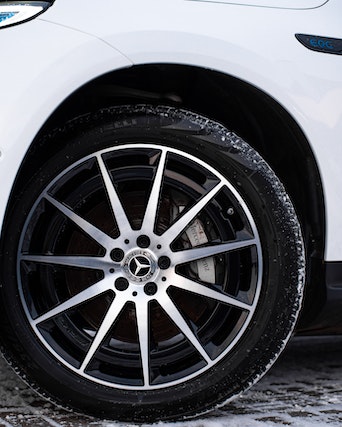Driving a vehicle entails a myriad of responsibilities, but one of the most important is ensuring that your tires are in top condition. Among all types of tires, all season tires offer versatile performance throughout the year. In this article, we will delve into the world of all-season tires, understanding their design, benefits, and factors to consider when buying.

Understanding All-Season Tires
All-season tires are essentially a hybrid of summer and winter tires, designed to handle a variety of conditions including dry roads, wet roads, and in some cases, light snow. They provide a balanced mix of performance and longevity, which makes them a popular choice for everyday driving.
The Science Behind All-Season Tires
The secret to the versatility of all-season tires lies in their unique design and construction. Made of a special type of rubber compound that stays flexible at different temperatures, these tires ensure optimal traction in both hot and cold weather. Their tread patterns are engineered to channel water away, minimizing the risk of hydroplaning during rainy conditions.

Advantages of All-Season Tires
All-season tires offer several benefits, some of which include:
Versatility
The most significant advantage is their adaptability to various weather conditions. Whether it’s summer heat, spring showers, or autumn chill, all-season tires maintain consistent performance.
Cost-Effectiveness
Instead of buying separate sets of tires for different seasons, investing in all-season tires can be more cost-effective. They also tend to have a longer tread life, meaning you won’t need to replace them as frequently.
Convenience
With all-season tires, you can avoid the hassle of switching between summer and winter tires. This can be particularly useful for motorists living in regions with mild climate variations.

All-Season Tires Vs. Winter Tires
While all-season tires perform well in many conditions, they don’t replace winter tires for severe winter conditions. Winter tires have more sipes (small cuts in the tread) and a different tread pattern to better grip snowy and icy roads.
All-Season Tires Vs. Summer Tires
Summer tires, on the other hand, provide superior performance in hot weather and rainy conditions. However, their performance drops significantly as temperatures fall below 7°C (44.6°F), a threshold where all-season tires still maintain good performance.
Top Brands for All-Season Tires
When shopping for all-season tires, you’ll encounter various brands. Some of the most reputable include Michelin, Goodyear, and Bridgestone. They are known for their quality, durability, and innovative designs.
Factors to Consider When Buying All-Season Tires
Purchasing all-season tires is an important decision, and there are several factors to consider:
Vehicle Type
Tire size and type should match your vehicle’s specifications. SUVs, sedans, and sports cars each require different tire sizes.
Driving Conditions
Consider your typical driving conditions. If you frequently drive in heavy snow or extreme cold, all-season tires may not be the best choice.
Budget
While all-season tires can be cost-effective in the long run, they can have a higher upfront cost. Always compare prices from different manufacturers.

Proper Care for All-Season Tires
To maximize the life of your all-season tires, regular maintenance is necessary. This includes proper inflation, regular rotation, and timely alignment checks.
Conclusion
All-season tires offer a balanced blend of performance, longevity, and versatility, making them an excellent choice for many drivers. While they aren’t as specialized as summer or winter tires, they are reliable for a variety of conditions and climates. Ultimately, the right tire for you

